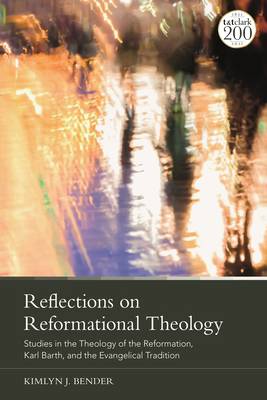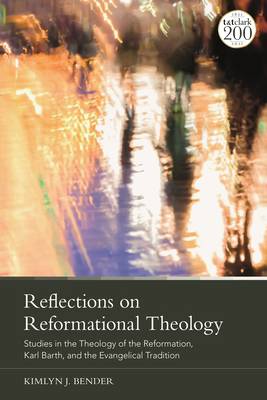
Je cadeautjes zeker op tijd in huis hebben voor de feestdagen? Kom langs in onze winkels en vind het perfecte geschenk!
- Afhalen na 1 uur in een winkel met voorraad
- Gratis thuislevering in België vanaf € 30
- Ruim aanbod met 7 miljoen producten
Je cadeautjes zeker op tijd in huis hebben voor de feestdagen? Kom langs in onze winkels en vind het perfecte geschenk!
- Afhalen na 1 uur in een winkel met voorraad
- Gratis thuislevering in België vanaf € 30
- Ruim aanbod met 7 miljoen producten
Zoeken
Reflections on Reformational Theology
Studies in the Theology of the Reformation, Karl Barth, and the Evangelical Tradition
Kimlyn J Bender
Paperback | Engels
€ 67,95
+ 135 punten
Uitvoering
Omschrijving
The essays in this volume examine some of the fundamental doctrinal convictions of Martin Luther and the Reformation legacy, as well as the maturation and development of these convictions in the theology of Karl Barth. The broad evangelical vision that spans its various confessional tributaries is presented in the essays of this volume. Together these studies serve as a cumulative argument for the ongoing coherence, meaning, and consequence of that vision, one that at its heart is constructive and ecumenical rather than narrowly polemical.
Kimlyn J. Bender examines a variety of topics such as the relation of Christ and the Church as understood in the theology of Luther and Barth, the centrality of Christ to an understanding of all the solasof the Reformation, the place and significance of the Reformers in Barth's own thought, and Barth's theology in conversation with distant descendants of the Reformation often neglected, including Baptists in America, Pietists in Europe, and Barth's own complicated relationship with Kierkegaard. Bender concludes his discussion by presenting constructive proposals for a Church and university "on the way" and thus ever-reforming.
Kimlyn J. Bender examines a variety of topics such as the relation of Christ and the Church as understood in the theology of Luther and Barth, the centrality of Christ to an understanding of all the solasof the Reformation, the place and significance of the Reformers in Barth's own thought, and Barth's theology in conversation with distant descendants of the Reformation often neglected, including Baptists in America, Pietists in Europe, and Barth's own complicated relationship with Kierkegaard. Bender concludes his discussion by presenting constructive proposals for a Church and university "on the way" and thus ever-reforming.
Specificaties
Betrokkenen
- Auteur(s):
- Uitgeverij:
Inhoud
- Aantal bladzijden:
- 312
- Taal:
- Engels
Eigenschappen
- Productcode (EAN):
- 9780567702258
- Verschijningsdatum:
- 23/02/2023
- Uitvoering:
- Paperback
- Formaat:
- Trade paperback (VS)
- Afmetingen:
- 156 mm x 234 mm
- Gewicht:
- 430 g

Alleen bij Standaard Boekhandel
+ 135 punten op je klantenkaart van Standaard Boekhandel
Beoordelingen
We publiceren alleen reviews die voldoen aan de voorwaarden voor reviews. Bekijk onze voorwaarden voor reviews.









